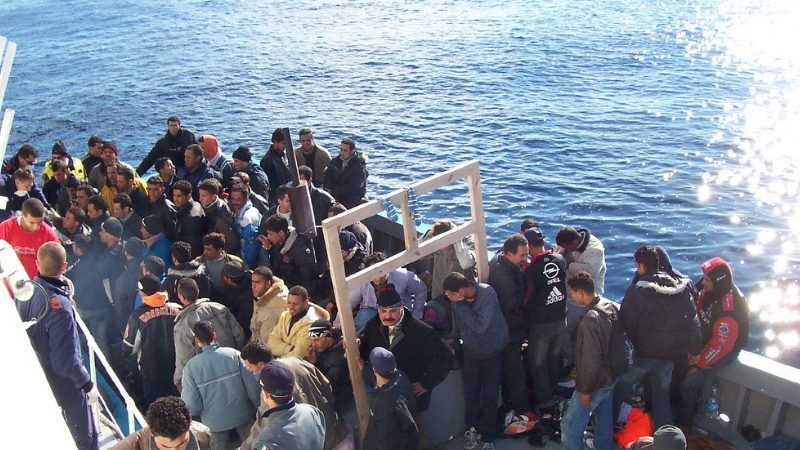The UN Refugee Agency appealed to the Italian authorities to immediately allow the 150 migrants on board the Italian coast guard Dicotti to disembark in Catania, where it has been docked for five days.
The UNHCR also appealed to EU member states to “urgently offer” relocation places to the migrants, who have been stranded on the boat after the Italian government refused to allow them to land.
“The time has come to end the back-and-forth that has seen countries competing in a race to the bottom on who can take the least responsibility for people rescued at sea. It is dangerous and immoral to put the lives of refugees and asylum-seekers at risk while States engage in a political tug-of-war on long-term solutions,” said UN High Commissioner for Refugees Filippo Grandi.
UNHCR urged the EU to encourage established and predictable arrangements in the Mediterranean region for the disembarkation of people rescued at sea and urged member states to accelerate efforts to put such an arrangement in place.
In 2018, more than 1,600 people have lost their lives attempting to reach European shores, despite the number of people attempting to cross being significantly reduced compared to previous years, it said.
“Coming out of the horrors of the Second World War, Europeans were among some of the key architects of the 1951 Refugee Convention, which has enshrined in international law the fundamental human right to seek asylum,” said Grandi.
“The principles of the Convention, that share European values of solidarity and human rights, have stood the test of time as we have reaped the subsequent benefits of unity, goodwill and prosperity. I urge European States to uphold these principles, to do the right thing and offer places of asylum for people rescued from the Mediterranean Sea in their time of need.”
But while these discussions continue, frightened people who may be in need of international protection should not be caught up in politics. “UNHCR stands ready to support States with developing an approach that has, at its core, rescuing lives in distress at sea and in addressing the root causes driving forced displacement”.












